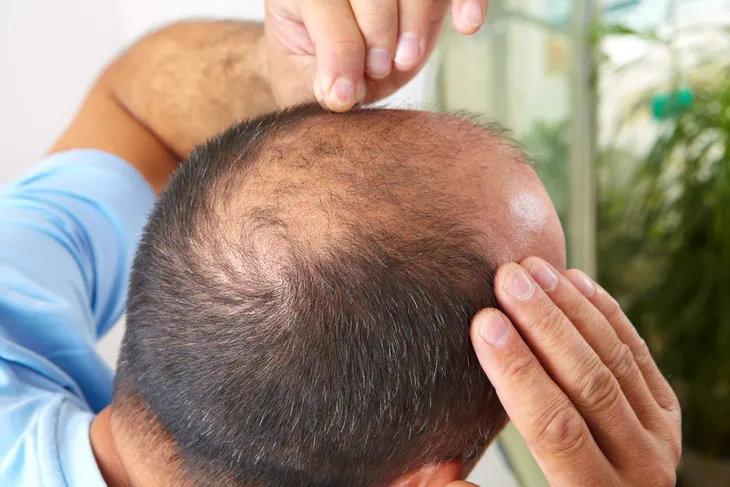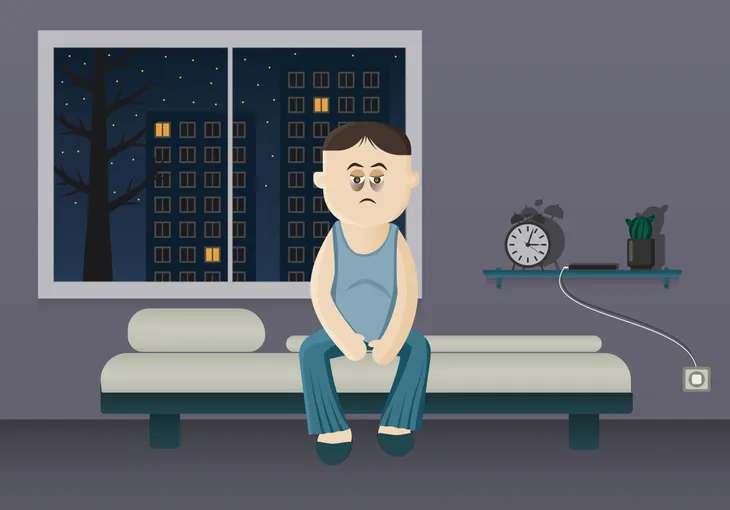Although we don’t often think about them, hormones are incredibly important to the day-to-day functioning of the body, as they are “chemical ‘messengers’ that impact the way your cells and organs function,” says WebMD.
Women tend to be more commonly associated with hormonal imbalances due to menstrual cycles and menopause, but men also experience hormone changes throughout their lives, especially as they age. Each gender has its own unique set of symptoms that occur with a hormonal imbalance, they share the following 12 in common.
Libido Changes
If you suddenly find you’re not in the mood to be intimate, a hormonal imbalance could be the cause. In women, this tends to be because of lower than normal estrogen and testosterone levels, which is often because they have entered menopause. Low estrogen levels can also cause women to experience vaginal dryness or pain during intercourse (known clinically as dyspareunia), which impacts their desire for intimacy.
For men, low libido is due to low levels of testosterone and, in some cases, high levels of prolactin, which LiveStrong says is “a hormone responsible for breast milk production.” In addition to lacking sexual desire, the source says that too much prolactin in men can cause erectile dysfunction (ED) as well.
Infertility
Hormonal imbalances can also impact a person’s ability to have children, or fertility. For women, infertility is often linked to polycystic ovarian syndrome (PCOS), as those with the condition tend to have “high amounts of androgens (including testosterone) as well as insulin resistance,” says Women’s Health Network, both of which “contribute to increased estrogen, along with lack of ovulation and infertility.”
In men, infertility can be the result of “low sperm counts or low sperm quality,” which LiveStrong indicates may be caused by a deficiency in a gonadotropin-releasing hormone. This deficiency can result in low levels of two other hormones (follicle-stimulating hormone [FSH] and luteinizing hormone [LH]) that are responsible for testosterone and sperm production.
Mood Changes
Not feeling quite like yourself lately? Mood changes are common among those with hormonal imbalances. As estrogen affects brain chemicals, such as serotonin, dopamine, and norepinephrine (which are largely responsible for how we feel), a sudden increase in these hormones can lead to mood swings, “whereas anxiety can be due to lower progesterone and depression could be due to lower estrogen levels,” says Power of Positivity.
According to Healthline, low testosterone levels in men can lead to mood changes, as “testosterone influences many physical processes in the body, it can also influence mood and mental capacity, ” which increases the likelihood of them struggling with lack of focus, irritability, or depression.
Weak Bones
Bone health is not often associated with hormones, but they do play a key role in keeping your skeletal system strong. Parathyroid hormone (PTH), for instance, “helps control the amount of calcium in the blood,” says Reader’s Digest; therefore, low levels of it may cause the bones to become brittle, possibly leading to osteoporosis.
And while osteoporosis is largely associated with women, it can also affect men who have low testosterone (especially seniors), as the hormone “helps produce and strengthen bone,” indicates Healthline.
Changes in Weight
If there’s been a noticeable change in your weight lately, but you have no explanation as to why, it may be because of a hormonal imbalance. In women, weight gain can be caused by low progesterone and high estrogen, while weight loss may be due to excessive thyroid hormones.
Men may also experience sudden weight gain due to excess estrogen. And in some cases, they may develop gynecomastia, where the breast tissue becomes enlarged. Unexplained weight loss in men, however, can be the result of low testosterone.
Fatigue
If you’re getting plenty of sleep but can’t seem to shake feelings of tiredness, a hormonal imbalance may be to blame. For women, Rocky Mountain Analytical explains that this may be due to “lack of a thyroid hormone, adrenal fatigue, or another form of hormone imbalance.”
In men, however, it’s low testosterone levels that may be causing persistent fatigue or decreased energy levels to occur. If you’re finding it harder to stay awake throughout the day or lacking the energy to get up and exercise, it may be best to book an appointment with your doctor to confirm the cause.
Hair Loss
Hair loss is a common (although oftentimes dreaded) part of aging, especially for men. While for some balding may be hereditary, for others it may be due to having low testosterone levels, as one of the hormone’s duties is to help with hair production. Healthline indicates that in addition to losing hair on their heads, men with low testosterone levels may also “experience a loss of body and facial hair, as well.”
For women, unexplained or premature hair loss may be due to “Imbalances in thyroid function or between estrogen and testosterone,” says Women’s Health Network. While high levels of testosterone can cause unusual hair growth on the chin, face, or other body areas—a condition known as hirsutism.
Poor Sleep
We’ve all experienced nights where you crawl into bed after a long day, but all you can do is toss and turn. While it’s normal for this to happen from time to time, if it’s occurring on a regular basis, it may be a sign that your hormones are out of whack. In women, this may be due to low levels of progesterone, a hormone the ovaries release to help you sleep.
In men, however, a lack of adequate shut-eye may be due to low testosterone levels. Regardless of gender, Power of Positivity indicates that “getting less sleep than usual as a result of hormonal changes is more common over the age of fifty.”
Night Sweats
Another factor that can make it challenging to get a good night’s sleep is night sweats, which can be caused by an imbalance in the body’s hormones. In women, low levels of estrogen or progesterone may be the cause, although Rocky Mountain Analytical adds that “other hormone imbalances in your body that come from the adrenals, ovaries, thyroid, pancreas or gastrointestinal tract may also be the source of the problem.”
And while night sweats are commonly associated with women going through menopause, men can experience them as well, particularly those with low testosterone levels.
Acne
If you’re well past the age of puberty and suddenly find yourself breaking out in pimples, the cause may be a hormonal imbalance. While it’s normal for women to experience mild acne just before or during their menstrual cycle, it tends to clear up fairly quickly.
If it persists, however, WebMD says it could be because of excess androgens. In both women and men, androgens (“male” hormones) “can cause your oil glands to overwork” and “affect the skin cells in and around your hair follicles.”
Brain Fog
With such busy lifestyles these days, it’s no wonder we experience forgetfulness on occasion. But if you notice it occurs regularly, it may point to a hormonal imbalance. For women, Reader’s Digest says that memory loss and impaired brain function may be due to low levels of growth hormones or thyroid hormones, as well as low levels of estrogen and progesterone.
In both genders, however, the culprit of this brain fog may be a high level of cortisol, which can result from experiencing too much stress. In the short term, elevated cortisol levels can affect memory and learning ability and in the long term can “start causing actual damage to the brain tissue, and eventually lead into real dementia,” says AnabolicMen.com.
Digestion Issues
While digestion issues can indicate that we’ve eaten something that doesn’t agree with us or that we’re coming down with a bug, they may also signal that our hormones are imbalanced. WebMD indicates that this is because “your gut is lined with tiny cells called receptors that respond to estrogen and progesterone,” so if these hormone levels are low, you might experience changes in digestion, such as nausea, bloating, and diarrhea.
In both men and women, high cortisol levels from chronic stress may also be the culprit, which “may contribute to irritable bowel syndrome (IBS), due to abnormal levels of serotonin,” says Rocky Mountain Analytical.















